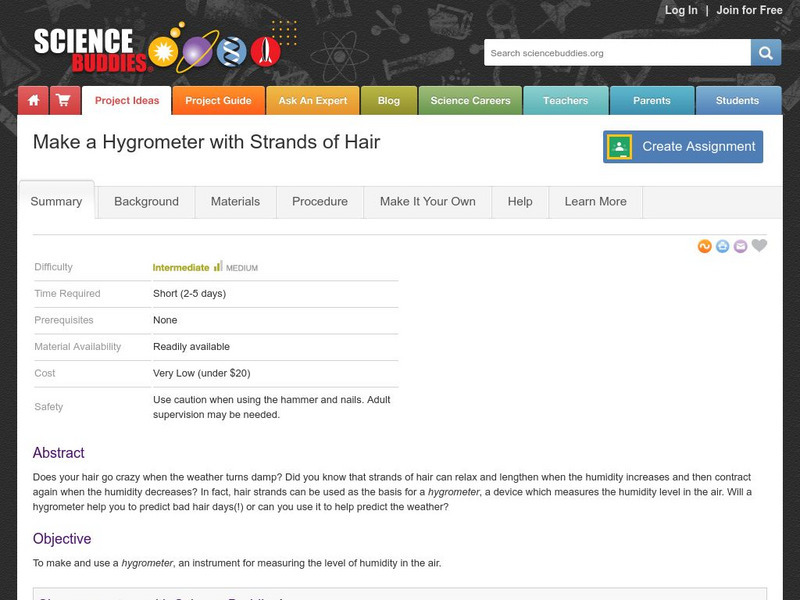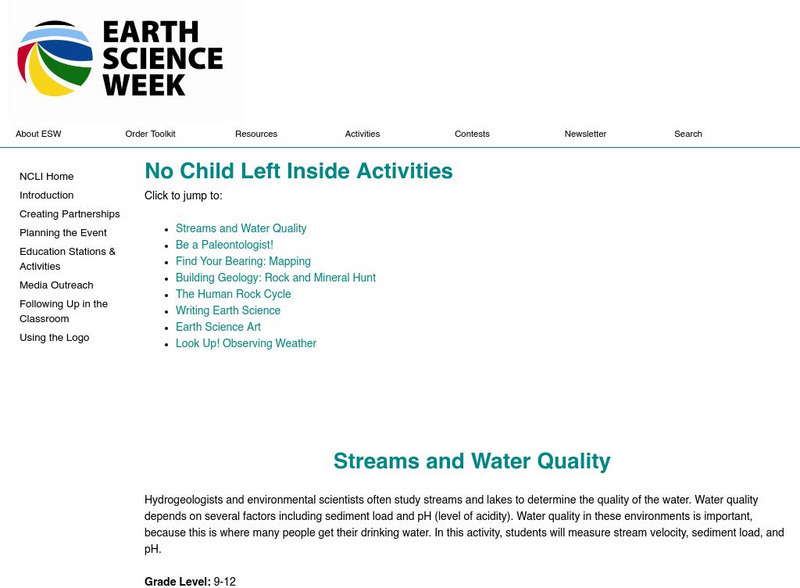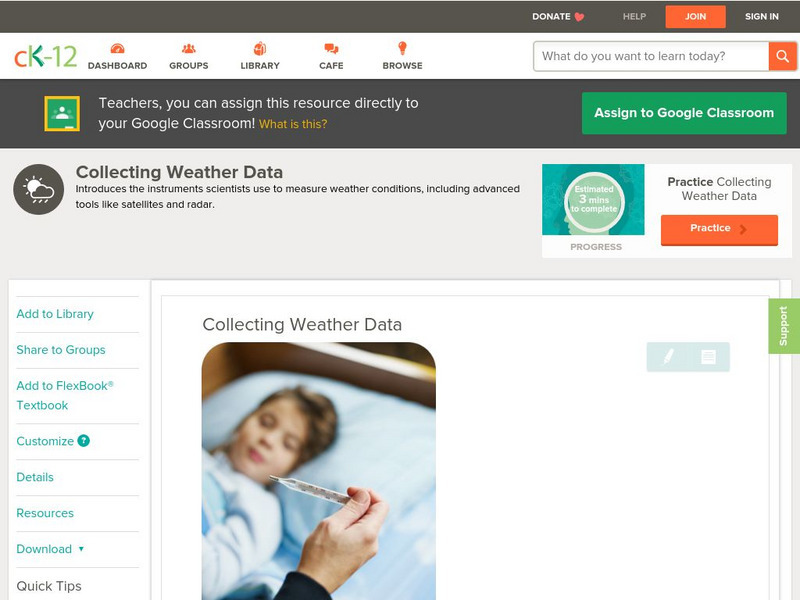Hi, what do you want to do?
Science Struck
Science Struck: A Layman's Guide to How a Sling Psychrometer Works
A sling psychrometer is used to measure humidity levels. Read about its history, how it works, its design, and how to use it. Includes a relative humidity table.
E-learning for Kids
E Learning for Kids: Science: Titanic Shipwreck: How Can We Predict the Weather?
Join Tim on the Titanic Shipwreck to understand about weather predictions. Learn about weather forecasts and different instruments that help determine what the weather will be. Win stars for every correct answer and earn a certificate at...
Science Buddies
Science Buddies: Make a Hygrometer With Strands of Hair
Does your hair go crazy when the weather turns damp? Did you know that strands of hair can relax and lengthen when the humidity increases and then contract again when the humidity decreases? In fact, hair strands can be used as the basis...
CK-12 Foundation
Ck 12: Earth Science: Collecting Weather Data
[Free Registration/Login may be required to access all resource tools.] Describes the various instruments that scientists use to collect weather data.
American Geosciences Institute
American Geosciences Institute: Earth Science Week: Look Up! Observing Weather
To get a better idea of how meteorologists make weather predictions, students will begin their own weather journals and make rain gauges.
Science Buddies
Science Buddies: Measure the Pressure
Scientists have developed an instrument called a barometer that can measure atmospheric pressure. In this activity, you will find out how a barometer works by building one yourself.
Science Struck
Science Struck: Interpreting Barometric Pressure Readings
Explains how to read a barometer and interpret its meaning, as well as how the barometer was invented.
Other
California Energy Commission: Science Projects: Make an Anemometer
Nice brief description of this wind speed device and the directions to make your own.
CK-12 Foundation
Ck 12: Earth Science: Collecting Weather Data
[Free Registration/Login may be required to access all resource tools.] Describes the various instruments that scientists use to collect weather data.
Texas Instruments
Texas Instruments: Measuring Air Pressure
This activity is intended for an Introductory Meteorology class; an earth science elective intended for Juniors and Seniors. (It was orginally modifed from an Introductory Meteorology Laboratory Assigment taught to undergraduates at...
Science Struck
Science Struck: History and Working Principle of the Anemometer
Explains what an anemometer is used for and the different models that have been developed since it was first invented.
Science Struck
Science Struck: Barometer Units
Explains the different measurement units that are used in barometers and provides conversion tables.
Science Struck
Science Struck: Types of Rain Gauges
Read about two types of rain gauges and how they work.
ArtsNow
Arts Now Learning: Sounds of Storms [Pdf]
In this lesson, 5th graders learn about the sounds of weather. They create an instrument that mimics rain, wind, or thunder, then use them for sound effects during an interactive story called Gracey Goose.












